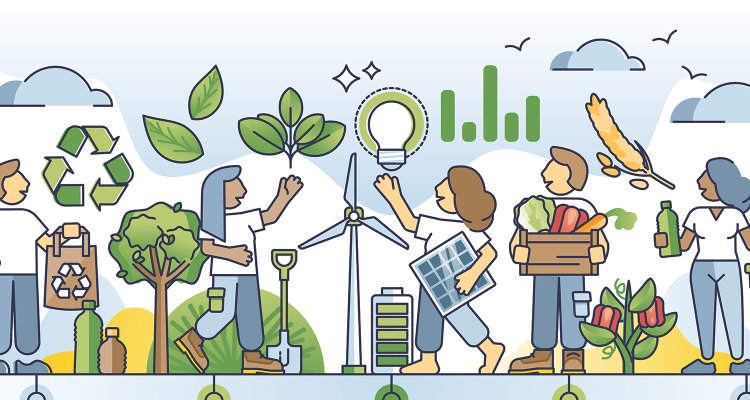
Collaborating with us: Our working process
Society Based Education (SBE) connects questions from society (from businesses, societal organisations, and government institutions) to the education of Wageningen University & Research (WUR). To do this, we help to formulate your question, turn it into a student project, and match your project to a suitable Bachelor's or Master’s course at WUR.
What type of questions can we formulate student projects for?
You can collaborate with students on a broad range of topics that fit the domains of Wageningen University & Research:

Within these domains, we search for projects that address complex societal challenges such as biodiversity, climate change, circular and biobased economy, feeding the world, or healthy societies – to name a few. Are you doubting whether your project idea fits this desciption? Feel free to contact us and we will look at the possibilities together.
Considering working with students: how does it work?
Throughout the academic year, there are various Bachelor's and Master's courses in which students collaborate in teams to work on real-life cases. These are short-term assignments in which students work inter- or monodisciplinary, full or part-time, for a period ranging from 3 to 12 weeks (depending on the course). Student project ideas can be submitted at any time.
Our most popular course is Academic Consultancy Training (ACT), where a transdisciplinary group of Master’s students become consultants for a real-life organisation. Each year, there are 5 start moments for the ACT course. These are in September, November, January, March and May. Find more details about this course on our ACT page.
You can find an overview of other courses we collaborate with.
If you’re looking for a student to be involved in your project via an internship, please get in touch with the Student Career Services.
What does a collaboration look like?
The following picture gives a schematic overview of the procedure and steps we take after you submit your idea, question, or project description. Please note that the timeline and steps of the collaboration will differ per course and type of question.

Interested?
Explore collaboration possibilities by clicking on the button below. Do you first want to know what’s in it for you and your organisation? Check out our page on why collaborate.